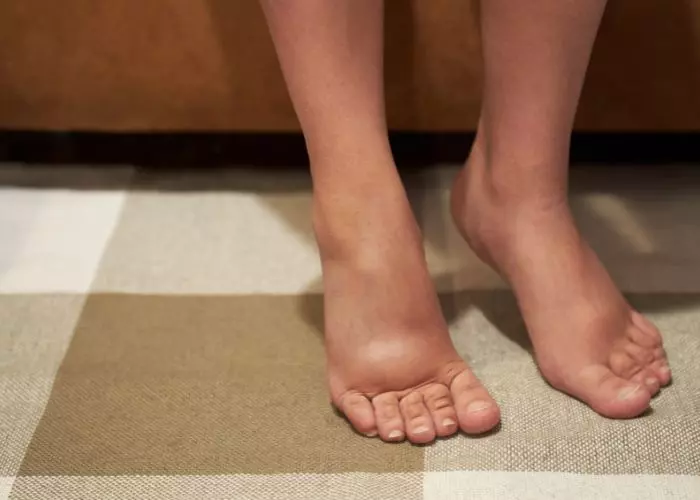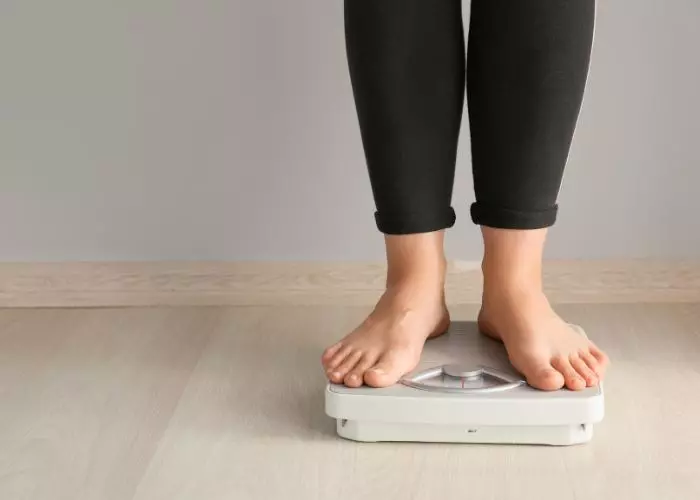Why Am I Gaining Weight 3 Weeks After Gastric Sleeve? Gastric sleeve surgery, also known as sleeve gastrectomy, is a popular weight loss procedure that involves reducing the size of the stomach. While it can lead to significant weight loss, some individuals may experience unexpected weight gain in the weeks following the surgery.
This can be disheartening and raise questions about the effectiveness of the procedure. However, it’s important to understand that weight fluctuations are a normal part of the post-operative journey. This article aims to explore the possible reasons behind weight gain three weeks after gastric sleeve.

Why Am I Gaining Weight 3 Weeks After Gastric Sleeve: Changes in Eating Habits and Portion Control
One possible reason for a weight gain three weeks after gastric sleeve surgery is struggling with changes in eating habits and portion control. Following the procedure, individuals need to adopt a new way of eating and practice mindful portion sizes.
It’s common to experience difficulties adjusting to the reduced stomach size. Overeating or consuming calorie-dense foods can lead to weight gain. Working closely with a registered dietitian, developing a balanced and nutritious meal plan, and focusing on eating small, nutrient-dense meals can help prevent weight gain in this critical phase.

Fluid Retention and Swelling
Weight gain after gastric sleeve surgery can be attributed to temporary fluid retention and swelling. Inflammation and the body’s healing process post-surgery can cause the retention of fluids, resulting in weight gain on the scale. You are learning Why Am I Gaining Weight 3 Weeks After Gastric Sleeve.
However, it’s important to note that this weight gain is usually temporary and subsides as the body heals.
To manage fluid retention effectively, it is crucial to follow the recommended hydration guidelines provided by the healthcare team, which may include consuming adequate water and limiting sodium intake.
Muscle Gain and Increased Strength
Engaging in regular exercise and incorporating strength training into the post-operative routine can lead to muscle gain. It’s important to remember that muscle weighs more than fat, so an increase in lean muscle mass can reflect as weight gain on the scale.
However, this muscle gain is beneficial for overall health, as it improves metabolism and enhances long-term weight loss. By focusing on strength training exercises recommended by healthcare professionals and maintaining a balanced exercise routine, individuals can reap the benefits of increased strength while continuing their weight loss journey.

Slowdown in Weight Loss
After the initial rapid weight loss following gastric sleeve surgery, it is common for the rate of weight loss to slow down or plateau around the three-week mark. This slowdown occurs as the body adapts to the changes and does not necessarily indicate weight gain.
To continue progressing towards weight loss goals, it is essential to adhere to a healthy diet, maintain a regular exercise routine, and attend follow-up appointments with the healthcare team for monitoring and guidance. Patience and consistency are key during this phase.

Emotional and Psychological Factors
Weight gain following gastric sleeve surgery can sometimes be influenced by emotional and psychological factors. Stress, anxiety, emotional eating, and other mental health concerns may contribute to fluctuations in weight. It is crucial to address these factors and seek support from healthcare professionals or therapists specializing in bariatric surgery.
Developing healthy coping strategies, practicing mindfulness, and focusing on emotional well-being can help individuals maintain a positive mindset throughout their weight loss journey. By addressing the emotional and psychological aspects, individuals can effectively manage weight fluctuations and achieve long-term success. Learn here also When Do You Stop Losing Weight After Gastric Sleeve.
Frequently Asked Questions
Is weight gain due to fluid retention and swelling common after gastric sleeve surgery?
Yes, weight gain due to fluid retention and swelling is common after gastric sleeve surgery. Inflammation and the body’s healing process can cause temporary fluid retention, which results in weight gain on the scale. However, this weight gain is usually temporary and resolves as the body heals.
How can emotional and psychological factors contribute to weight gain after gastric sleeve surgery?
Emotional and psychological factors such as stress, anxiety, emotional eating, and other mental health concerns can contribute to weight fluctuations. These factors may impact eating behaviors and hinder weight loss progress. It’s important to address these factors and seek support from healthcare professionals or therapists specializing in bariatric surgery.
How can muscle gain contribute to weight gain after gastric sleeve surgery?
Engaging in regular exercise and strength training after gastric sleeve surgery can lead to muscle gain. Since muscle weighs more than fat, an increase in lean muscle mass can reflect as weight gain on the scale. However, this is a positive outcome as it improves metabolism.
Can a slowdown in weight loss occur after gastric sleeve surgery?
Yes, it is common for the rate of weight loss to slow down or plateau around the three-week mark after gastric sleeve surgery. This is a natural part of the body adapting to the changes. It does not necessarily indicate weight gain.
How important is it to address emotional and psychological factors after gastric sleeve surgery?
Addressing emotional and psychological factors is crucial after gastric sleeve surgery. Stress, anxiety, emotional eating, and other mental health concerns can impact weight fluctuations. Seeking support from healthcare professionals or therapists specializing in bariatric surgery helps develop coping strategies, and maintain a positive mindset throughout the weight loss journey.
Conclusión
Experiencing weight gain three weeks after gastric sleeve surgery can be concerning, but it is often temporary and manageable. By understanding the potential reasons behind the weight gain individuals can overcome this challenge and continue on their weight loss journey.
Also, making appropriate adjustments in eating habits, exercise routines, and emotional well-being is important. Remember to consult with healthcare professionals for personalized advice and support during this crucial time. Stay committed, stay positive, and embrace the long-term benefits of gastric sleeve surgery for a healthier and fulfilling life.























